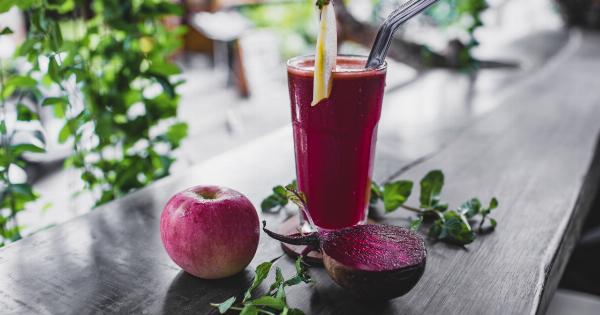High blood pressure, also known as hypertension, is a common medical condition that affects millions of people around the world.
It occurs when the force of blood against the walls of the arteries is consistently too high, leading to potential health complications. While there are various pharmaceutical treatments available to manage and control high blood pressure, many individuals are exploring natural remedies as an alternative or complementary approach to conventional medicine.
Understanding High Blood Pressure
High blood pressure is often referred to as the silent killer because it does not typically present with any noticeable symptoms.
However, if left untreated, it can significantly increase the risk of heart disease, stroke, and other serious health issues. Lifestyle factors, such as unhealthy diet, sedentary lifestyle, obesity, and stress, are known contributors to the development of high blood pressure. Additionally, genetics and certain medical conditions can also play a role in its onset.
The Benefits of Beetroot Juice
Beetroot (Beta vulgaris) is a root vegetable that is known for its vibrant color and numerous health benefits. It has been used in traditional medicine for centuries due to its medicinal properties.
One of the significant advantages of beetroot is its potential to lower blood pressure.
How Does Beetroot Juice Lower Blood Pressure?
Beetroot contains high levels of inorganic nitrates, which the body converts into nitric oxide. Nitric oxide is a signaling molecule that relaxes and dilates blood vessels, leading to improved blood flow and decreased blood pressure levels.
This natural vasodilation effect makes beetroot juice a promising natural remedy for hypertension.
Scientific Research on Beetroot Juice and Blood Pressure
Over the years, numerous studies have been conducted to investigate the effects of beetroot juice on blood pressure. The findings have consistently shown positive results:.
1. A 2012 Study
A study published in the journal Hypertension found that consuming beetroot juice significantly reduced blood pressure in individuals with hypertension.
The study subjects experienced a notable decrease in systolic blood pressure after drinking the juice for just a few hours.
2. A 2015 Meta-Analysis
A meta-analysis published in the journal Nutrition conducted a comprehensive review of studies that examined the effects of beetroot juice on blood pressure.
The analysis concluded that the consumption of beetroot juice led to significant reductions in both systolic and diastolic blood pressure.
3. A 2016 Randomized Controlled Trial
In a randomized controlled trial published in the journal Hypertension, researchers found that beetroot juice supplementation effectively lowered blood pressure in individuals with hypertension.
The study participants experienced a decrease in both systolic and diastolic blood pressure after consuming beetroot juice for four weeks.
4. A 2019 Systematic Review and Meta-analysis
A systematic review and meta-analysis published in the journal Nutrients evaluated the effects of beetroot juice on blood pressure across multiple studies.
The review concluded that the consumption of beetroot juice resulted in significant reductions in systolic and diastolic blood pressure levels in individuals with hypertension or prehypertension.
How to Incorporate Beetroot Juice into Your Diet
Beetroot juice can be easily incorporated into your daily diet. Here are some tips:.
1. Freshly Squeezed Beetroot Juice
You can prepare fresh beetroot juice at home using a juicer or a blender. Simply wash and peel the beetroots, then blend or juice them to extract the juice. It’s best to consume the juice immediately to obtain maximum nutritional benefits.
2. Beetroot Juice Smoothies
Add beetroot juice to your favorite smoothie recipes for an extra nutritional boost. Combine it with other fruits and vegetables to create a delicious and healthy beverage.
3. Mixed Vegetable Juice
Mix beetroot juice with other vegetable juices, such as carrot or celery, for a refreshing and nutritious drink. Experiment with different combinations to find your favorite blend.
4. Store-Bought Beetroot Juice
If juicing or blending fresh beetroots is not feasible for you, there are many commercially available beetroot juice options. Look for natural and organic brands without added sugars or preservatives.
Precautions and Possible Interactions
While beetroot juice is generally considered safe for most people, it may not be suitable for individuals with certain medical conditions or those taking specific medications.
It is always best to consult with a healthcare professional before making any significant dietary changes or incorporating beetroot juice into your routine.
The Bottom Line
Beetroot juice shows promising potential as a natural remedy for high blood pressure. Its high nitrate content and subsequent conversion to nitric oxide can help relax blood vessels and improve blood flow.
However, it is essential to remember that beetroot juice should not replace prescribed medications for hypertension. Instead, it should be seen as a complementary approach alongside a healthy lifestyle, including regular exercise and a balanced diet.
With its numerous health benefits and delicious taste, beetroot juice may be an excellent addition to your daily routine.






























